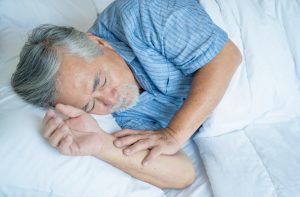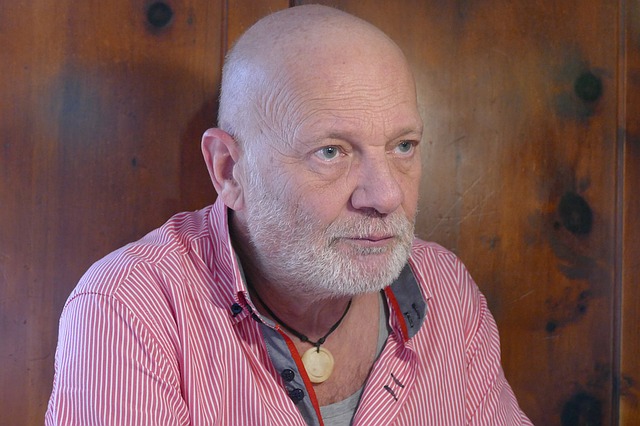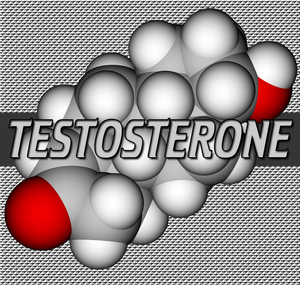Should Older Men Think About Testosterone Therapy - Download MP3
Most men are aware of Testosterone Deficiency and have an idea of the issues that it can cause, especially those associated with sexual function and muscle  health, but a lot of men are unsure whether they should seek treatment. It is true that many of the symptoms of Low-T share similarities with what has long been considered a part of natural aging, but if you are growing older and you feel your body start to slow down, Testosterone Therapy may be an option for you.
health, but a lot of men are unsure whether they should seek treatment. It is true that many of the symptoms of Low-T share similarities with what has long been considered a part of natural aging, but if you are growing older and you feel your body start to slow down, Testosterone Therapy may be an option for you.
Video Link: https://vimeo.com/298635221
Video Download: Click Here To Download Video
Video Stream: Click Here To Stream Video
Video Link: https://vimeo.com/298636297
Video Download: Click Here To Download Video
Video Stream: Click Here To Stream Video
Of course, Testosterone Replacement is a medical therapy just like any other and has its own risks and side-effects. Although Low-T Treatment with Testosterone has a solid safety profile, there are some question marks associated with treatment, and before initiating therapy, you should consider taking steps to improve your health and Testosterone Levels through lifestyle.
Testosterone Deficiency is a real medical condition, and Andropause is an increasingly accepted aspect of male health and aging. Andropause is an umbrella term which refers to the collection of symptoms of Low-T that manifest themselves as men grow older. Testosterone Levels drop slowly starting around the age of thirty. This natural decline occurs at a rate of about 1% per year. But  this steady decline represents more of a “peak baseline” that your Testosterone Production can naturally reach. There are a wide variety of factors related to your lifestyle, nutrition, and activity level which can suppress Testosterone Levels further, not related to aging itself.
this steady decline represents more of a “peak baseline” that your Testosterone Production can naturally reach. There are a wide variety of factors related to your lifestyle, nutrition, and activity level which can suppress Testosterone Levels further, not related to aging itself.
For example, Testosterone is produced mainly as a response to physical activity, especially anaerobic activity. If you don't get enough exercise, your body won't provide enough Testosterone. The same with sleep. Your body produces a significant amount of Testosterone while you are in deep, sound sleep. If you aren't able to sleep soundly through the night, this will inhibit your body's ability to produce Testosterone.
Often, Testosterone Therapy is prescribed to men that could benefit significantly from altering their lifestyle and picking up better habits, rather than starting up with Bio-Identical Testosterone Treatment.
Why Should Patients Be Sure to Only Use Testosterone with a Clear Clinical Need?
Testosterone Replacement, as a popular medical treatment, is relatively new. Men have been using Testosterone for Low-T for decades, but the body of clinical research has lagged somewhat, leaving some questions. Estrogen Replacement Therapy has been used clinically for decades and is heavily  researched, as a result of Menopause having such clear and apparent effects on health and psychology. The underlying issues resulting from Testosterone Deficiency have been recognized much more recently, and physicians and researchers are still discovering more underlying implications of the condition. Although it seems more than apparent that many men can benefit from Low-T Therapy, there is always the chance that new risks associated with treatment could be uncovered in the future.
researched, as a result of Menopause having such clear and apparent effects on health and psychology. The underlying issues resulting from Testosterone Deficiency have been recognized much more recently, and physicians and researchers are still discovering more underlying implications of the condition. Although it seems more than apparent that many men can benefit from Low-T Therapy, there is always the chance that new risks associated with treatment could be uncovered in the future.
Thirty years ago, Estrogen Treatments were provided to women heavily that were interested in alleviating the effects of Menopause and Post-Menopause, but today, as the body of research and medical knowledge has grown, the way that Estrogen Therapy is used has changed, in order to increase the effectiveness, the safety profile, and the overall benefits of treatment.
It appears that Testosterone Therapy is undergoing the same clinical evolution today. In the past, Bio-Identical Testosterone was often prescribed alone, without any other form of additional therapy. Research began to find that, when administered in this way, certain groups of patients were more likely to experience side-effects related to treatment, some of which were dangerous, including some cardiovascular severe issues.
that, when administered in this way, certain groups of patients were more likely to experience side-effects related to treatment, some of which were dangerous, including some cardiovascular severe issues.
Testosterone and Estrogen
Modern research is showing that most of these risks associated with Testosterone Therapy are not the result of Testosterone itself, but the result of the way that Bio-Identical Testosterone, when prescribed alone, impacts other aspects of hormone balance. For example, some Testosterone is always converted into Estrogen. This is one of the primary ways that the male body makes the Estrogen that it needs.
The problem is, elevated Estrogen Levels are associated with cardiovascular complications, and Estrogen Levels increase in correlation to circulating Testosterone Levels. Now, there is more and more evidence that suggests that these risks can be mitigated through the supplementary prescription of Estrogen Blockers, one of the most common of which is Arimidex. Estrogen Blockers prevent Estrogen Production from reaching dangerous levels, which mitigate much of the heart risk associated with Testosterone Therapy.
Testosterone and Blood Clots
Second, there has been some stroke and clotting risk associated with Testosterone Therapy. This happens because Testosterone encourages the production of Red Blood Cells, which can overcrowd the circulatory system and increase the risk of many cardiovascular issues such as stroke and heart attack. This issue can be treated effectively by donating blood. These two preventative factors, along with regular appointments and health monitoring, are quickly becoming routine aspects of treatment and will become increasingly recommended, especially for certain at-risk groups, in the coming years.
Testosterone and Fertility
Testosterone Therapy also has a noted impact on fertility, as it has long been known that Bio-Identical Testosterone Therapy suppresses the ability of the testes to produce healthy concentrations of sperm. Of course, like the previous  issues associated with Low-T Therapy, there are ways to mitigate this side-effect of treatment. There are multiple ways to increase Testosterone Levels while preserving fertility. For example, by combining Testosterone with Human Chorionic Gonadotropin, it is possible to increase Testosterone Levels while sustaining fertility, as well as the form and function of the testicles. Clomiphene Citrate is also prescribed off-label on its own both to boost Testosterone and increase Fertility, and Enclomiphene Citrate is undergoing the FDA-Approval process as a treatment for fertility.
issues associated with Low-T Therapy, there are ways to mitigate this side-effect of treatment. There are multiple ways to increase Testosterone Levels while preserving fertility. For example, by combining Testosterone with Human Chorionic Gonadotropin, it is possible to increase Testosterone Levels while sustaining fertility, as well as the form and function of the testicles. Clomiphene Citrate is also prescribed off-label on its own both to boost Testosterone and increase Fertility, and Enclomiphene Citrate is undergoing the FDA-Approval process as a treatment for fertility.
Other Issues Related to Low-T Therapy
Of course, there are other issues associated with Testosterone Therapy that should be considered as well. For example, Testosterone Therapy can encourage prostate growth, which may lead patients with a predisposition to prostate issues to perhaps avoid the therapy or at least use it with caution. Also, patients with sleep apnea should be cautious regarding Low-T Treatment, because Testosterone Treatment does have the noted effect of complicating sleep apnea in some patients.
Although there are still as-of-yet unanswered questions regarding the long-term safety of Low-T Therapy, it is quite clear that a large subset of patients in the United States can benefit significantly from Low-T Treatment.
How to Get Testosterone Therapy
If you are interested in Testosterone Therapy Treatment, it is essential to see a medical professional that can assess your needs. Don't try to take Testosterone under the table, or for purposes other than the treatment of Clinically Diagnosed Testosterone Deficiency. To qualify for therapy, you must both show  symptoms of Testosterone Deficiency and have medically Low Testosterone Levels as determined by blood testing and diagnostic analysis. If you are eligible, and your doctor decides that you can benefit from treatment, he or she will discuss treatment options and determine a course of action that is right for your needs. Make sure you discuss additional treatment options such as Estrogen Blockers to make sure that you get the total care that you need.
symptoms of Testosterone Deficiency and have medically Low Testosterone Levels as determined by blood testing and diagnostic analysis. If you are eligible, and your doctor decides that you can benefit from treatment, he or she will discuss treatment options and determine a course of action that is right for your needs. Make sure you discuss additional treatment options such as Estrogen Blockers to make sure that you get the total care that you need.
If your Testosterone Levels are borderline or somewhat low, consider altering your lifestyle habits to naturally increase your Testosterone Levels. For many patients, this may be all that is needed to improve health and wellness, because the patient's Testosterone Deficiency in many cases is more the result of the patient's lifestyle choices than his Age-Related Deficiency.
How to Boost Testosterone Without HRT Treatment
If you are trying to increase your Testosterone Levels without Bio-Identical Hormone Treatment naturally, here are some steps that you can take:
Work out four to five times per week—Engage in both Cardiovascular and  Anaerobic Exercise regularly. Physical activity encourages your body to produce more Testosterone.
Anaerobic Exercise regularly. Physical activity encourages your body to produce more Testosterone.
Reduce your intake of carbohydrates and sugar—A lot of people in the United States eat way too much sugar and rely too heavily on carbohydrates. Eat more protein and healthy fat and focus on not overeating sugar or carbs. Choose complex sugars and starches, because they are healthier for you and are better for your blood sugar.
Cut back on alcohol—All forms of alcohol can convert Testosterone into Estrogen. This is one of the factors which contribute to the Beer Belly associated with overindulgence in alcohol. If you are a heavy drinker, your alcohol use is likely inhibiting your Testosterone Production and adding to your symptoms of deficiency.
Stop Smoking—Smoking has been proven to reduce the effectiveness of Testosterone in the bloodstream and is full of carcinogens that heavily impact your health and hormone balance.
Take Control of Your Stress—Hormone balance is heavily predicated on keeping your stress in check. Stress, both physical and psychological, activates hormones related to fight-or-flight response, including Cortisol. Cortisol is a necessary hormone and has many healthy and beneficial effects, but chronic stress puts your hormones out of balance, and if you produce too much Cortisol, this eats away at your ability to produce Testosterone, which can lead to Testosterone Deficiency.
Sleep 7-9 hours of sleep per night, depending on your body's needs—Everyone has their own natural biological rhythm, but most people need between  seven and nine hours of sleep per night. Younger people tend to need more sleep, and older people need less sleep. Make the time to sleep each night soundly, and create an environment conducive to healthy sleep.
seven and nine hours of sleep per night. Younger people tend to need more sleep, and older people need less sleep. Make the time to sleep each night soundly, and create an environment conducive to healthy sleep.
Keep your blood-sugar balanced—Your lifestyle choices have an impact on your blood sugar levels. Make sure you eat a diet with controlled portions and don't overdo simple sugars and carbohydrates. Combining a sensible diet with regular exercise will keep your Insulin Levels balanced, which promotes the healthy production of Testosterone.
Get depression and anxiety disorders treated—Anxiety and Depression are caused both by psychological and environmental influences, and they both wreak havoc on your happiness and your body's hormone balance, both directly, and due to the way that the conditions affect your life. For example, if you are depressed, you are more likely to overeat and live a more sedentary lifestyle. If you are anxious, your cortisol levels will skyrocket, and you'll be less likely to engage in beneficial forms of release.
Don't abuse narcotics, or limit your use of narcotics—Narcotics significantly impact hormone balance. If you abuse drugs, stop using them or see a professional that can help you quit safely. If you take medications like sleeping aids or other OTC Narcotics, cut back on or quit using them to promote improved sleeping patterns and hormone health.
Get a physical—Low-T and Andropause share some characteristics with other health conditions that can affect your life. Just by going for a routine physical, you may uncover an underlying health condition which is impacting your health and leading to symptoms of Low-T or contributing to Testosterone Deficiency itself!
If These Lifestyle Changes Don't Help, Seriously Consider Treatment
All of these options can improve your Testosterone Balance, but if you are suffering from significant Testosterone Deficiency, even these options won't enhance your hormone balance and your health state. If your efforts to improve your health and wellness are not suitably effective, then it's very likely time to give Bio-Identical Testosterone Therapy a try. It can be truly life-changing for patients that need it!

Contact Us Today For A Free Consultation

Word Count: 1902





















